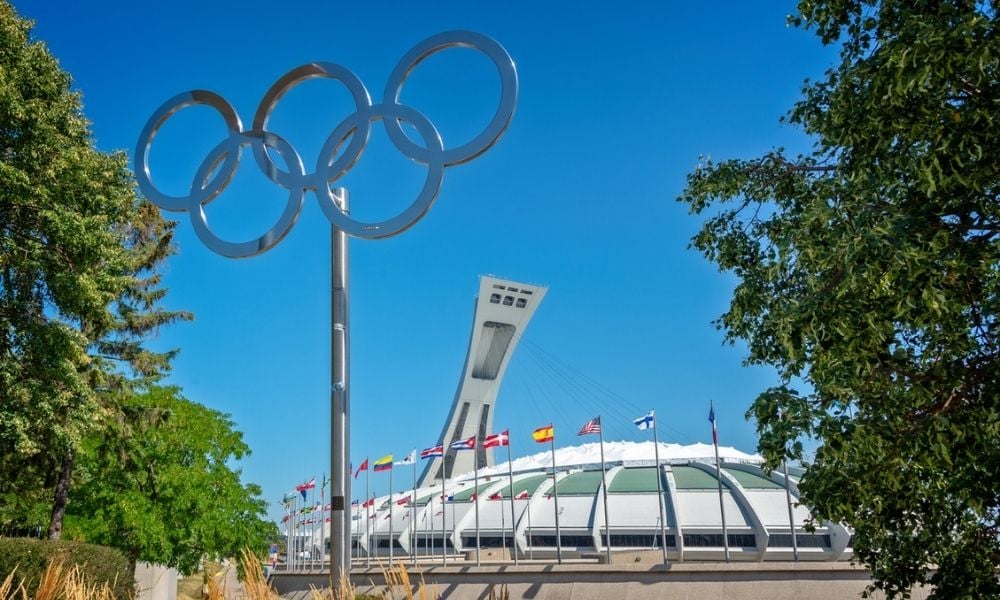
Legal department supports Safe Sport initiative to prevent maltreatment in sport

Planning for the intricacies of two back-to-back Olympic Games was an unprecedented challenge for the team at the Canadian Olympic Committee, with the 2020 Summer Games postponed to 2021 due to the pandemic, and the Winter Games starting imminently in February 2022.
The COC made the decision in March 2020 that they would not attend the Summer Games if they occurred as scheduled in July 2020. The decision was made before the announcement that the Games would be postponed.
“We made that decision principally out of concern for the athletes who were continuing to train and potentially compromising their safety, so it was a landmark decision that we made,” says Marianne Bolhuis, general counsel and corporate secretary at the Canadian Olympic Committee. “That decision followed our whole general principle around the Games and the pandemic which was really a risk-based approach, focused on health and safety, with our team members and athletes right at the forefront.”
When the International Olympic Committee subsequently announced the postponement of the Games, this set off a series of challenges for Bolhuis and her team, including reviewing contracts and making amendments to accommodate postponements with vendors, partners and sponsors involved in the Games. The team also had to start planning for the postponed Games with a vast array of new health and safety measures to consider. For example, they brought in a vendor to conduct extra sanitization at the event.
“Our goal was really to make sure that we had zero COVID cases if we could manage that, and I think we were really lucky that we came out without a single case that occurred at the Games,” says Bolhuis.
The legal department at the COC also helped to support athletes with qualification-related issues to ensure that everyone had a fair chance to compete in the postponed Games.
Despite the many challenges they faced, planning for two back-to-back Olympic Games did offer some benefits to Bolhuis and her team, as many of the efficiencies created for the Tokyo Games are being leveraged again in preparation for the upcoming Winter Games in Beijing.
“Processes and work that would normally not come back up for another two years have come back within seven months so there have been some efficiencies,” says Bolhuis. However, the team continues to navigate many new challenges that are unique to the Beijing Games – not least the arrival of the Omicron variant which has significantly increased the risk of contracting COVID prior to the Games. There are also some unique geopolitical issues relating to China which Bolhuis is carefully monitoring. She is also preparing to manage any disputes or crises that crop up throughout the Games.
As general counsel at the COC for the past three-and-a-half years, Bolhuis oversees all legal, contractual, IP and dispute resolution matters. She also supports the activities of the board of directors as corporate secretary, and she works with her colleagues on the senior leadership team to make decisions about strategy and the operational direction of the COC and to address risks.
Bolhuis takes pride in having built a cross-functional, collaborative team that works closely with the entire organization. Aside from preparing for the Games, she keeps busy with many other projects on an ongoing basis, including supporting the federal government’s Safe Sport initiative which aims to create a healthy culture in sport. The legal department at the COC supported the update of all policies to conform with the new requirement implemented by Sport Canada to address and prevent maltreatment in sport.
“We’re really behind this effort that the government put forward to create these universal standards in maltreatment, so we’ve done a lot in-house to get our own policies up to date and that will continue,” says Bolhuis.
Bolhuis is also excited to work on a Canadian domestic Olympic bid that was announced in December, 2021, which could potentially bring the Winter Games back to Canada in 2030 – exactly 20 years since Canada last played host to the Games in Vancouver.
“It’s still very early days but we’re going to hit the ground running because the timeline for approving a bid for the 2030 Games is going to be quite short,” says Bolhuis.
Another initiative close to Bolhuis’ heart is the COC’s Diversity, Equity & Inclusion action plan which aims to create more inclusive policies at the COC. Both the legal and governance teams at the COC are closely involved in that program. On the governance side, Bolhuis is also involved in increasing representation of diverse members at the board level.
Although she started her legal career at McCarthy Tétrault, Bolhuis always felt drawn to an in-house role as she hoped to marry her business and legal background. She worked in-house at Moneris Solutions and Diageo before joining the COC in 2018.
“The thing I like best about being an in-house lawyer is that it really feels like a team sport because our objectives in the legal team have to be aligned with the organization or else it doesn’t really work,” she says.
After the intensity of preparing for two back-to-back Games, Bolhuis also hopes to take a breath in 2022 and focus on finding new ways to improve legal support and processes for Games operations.